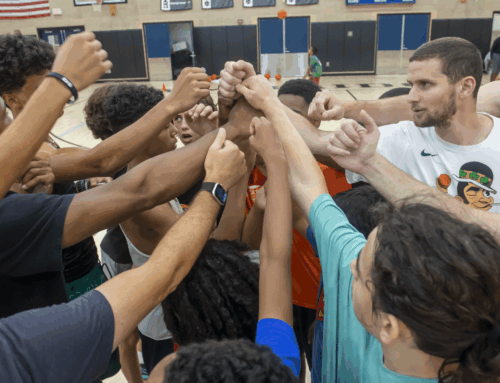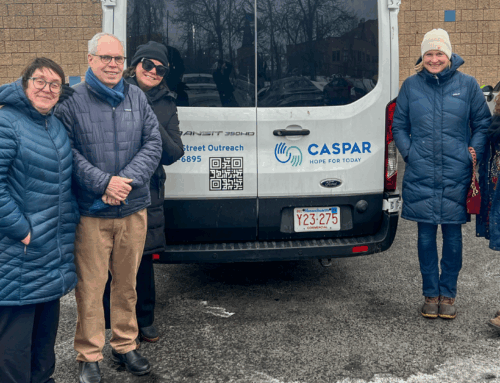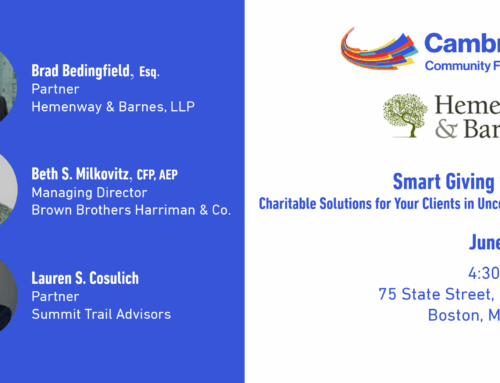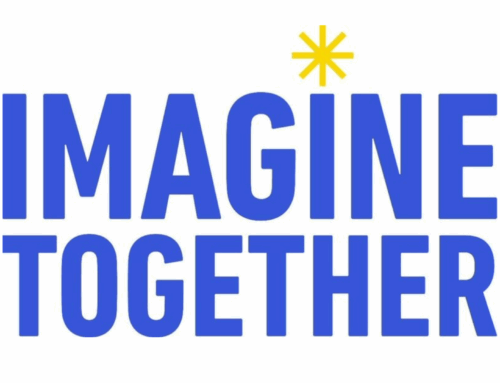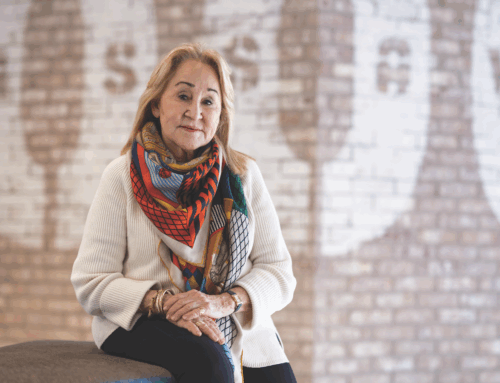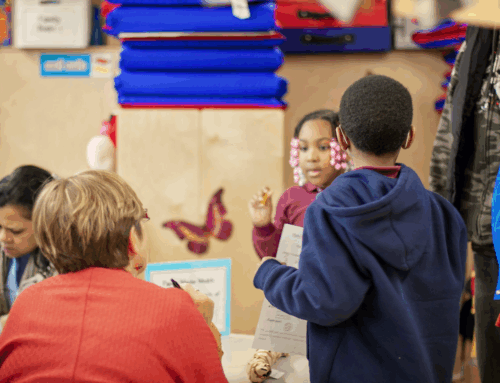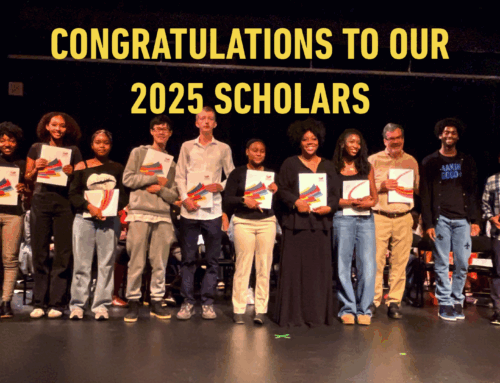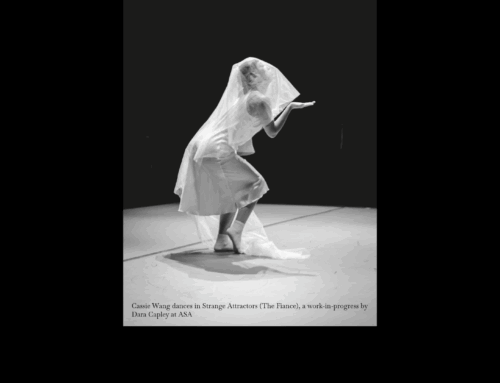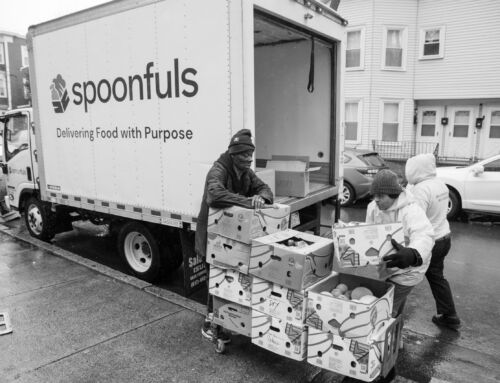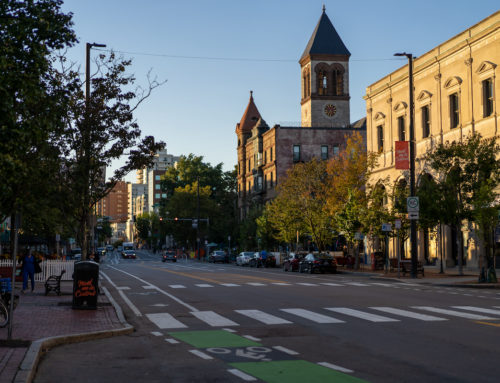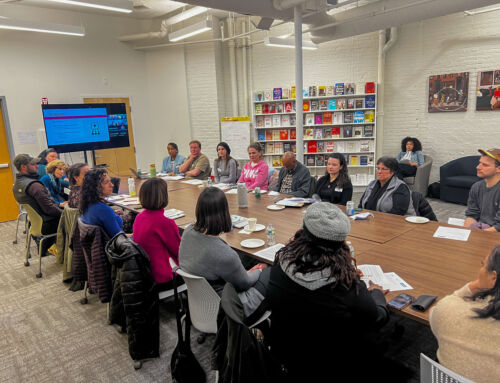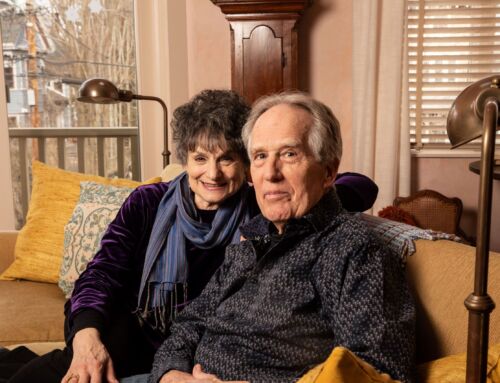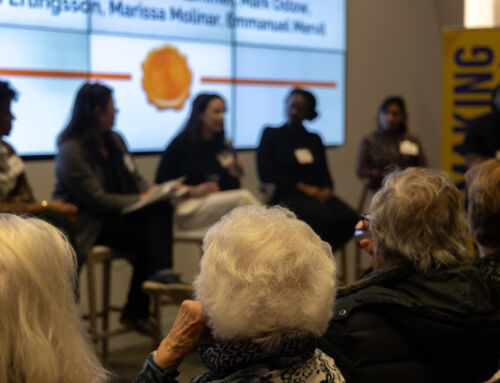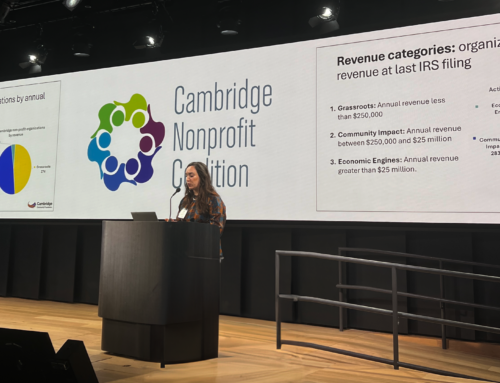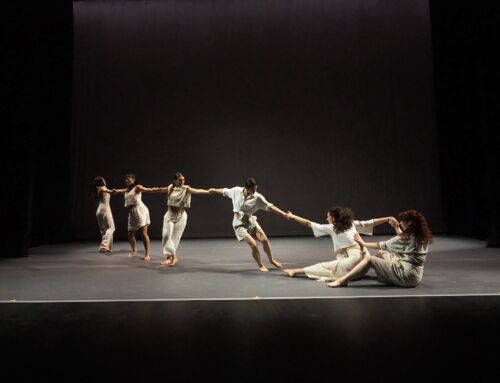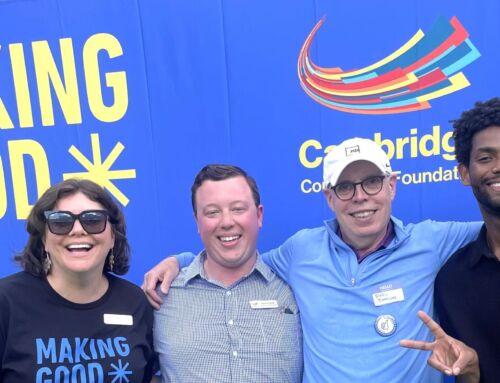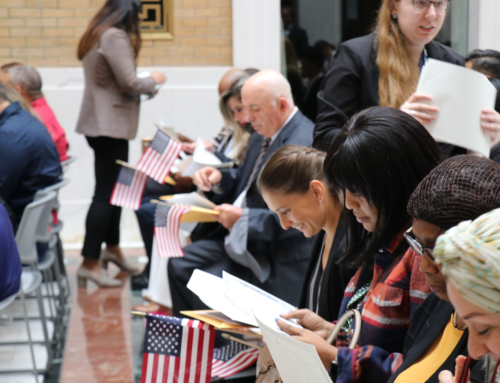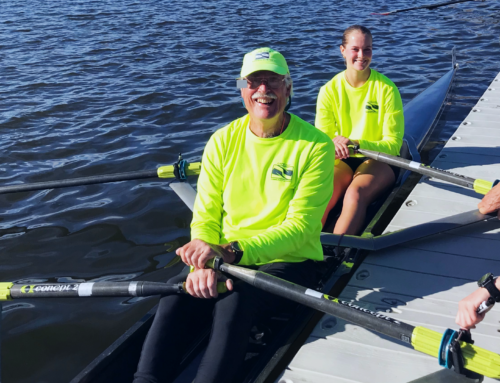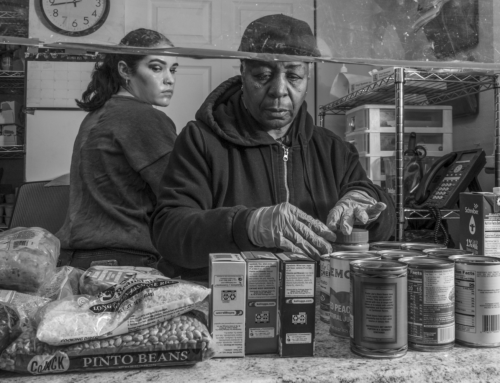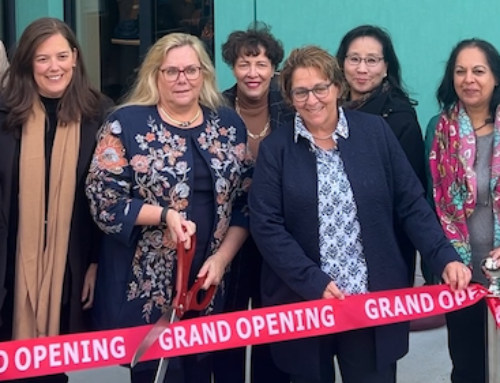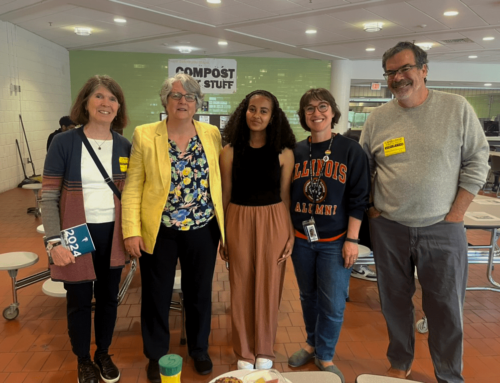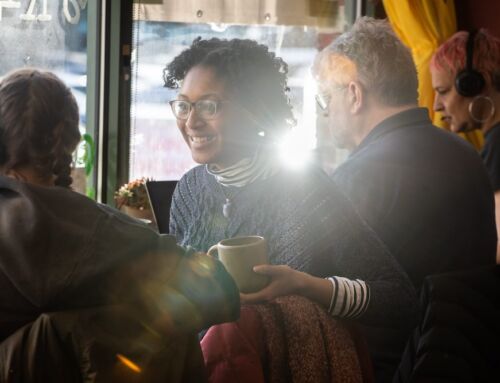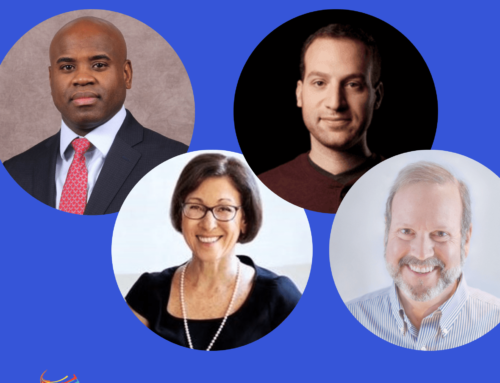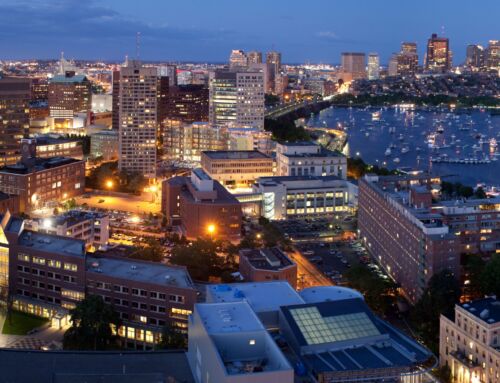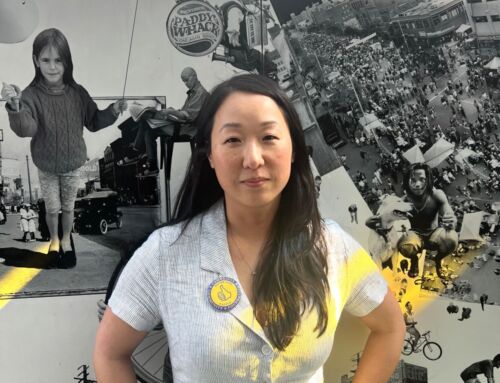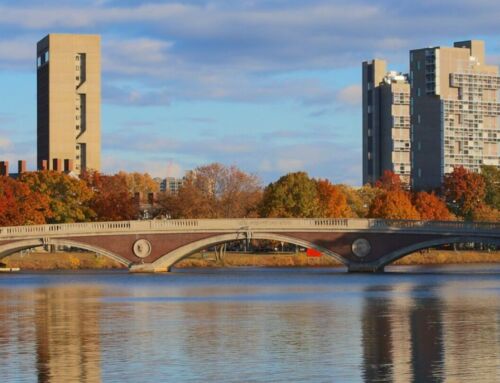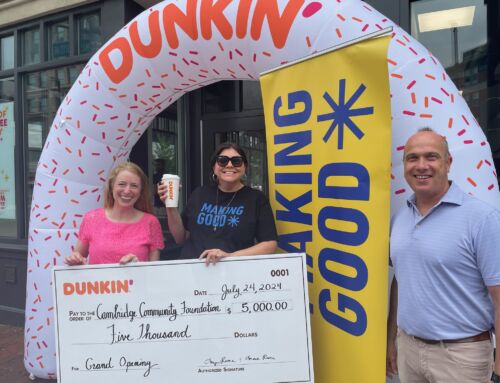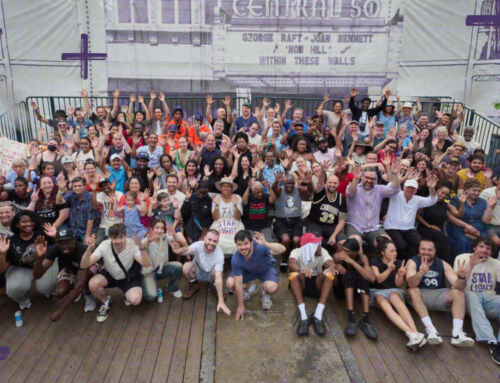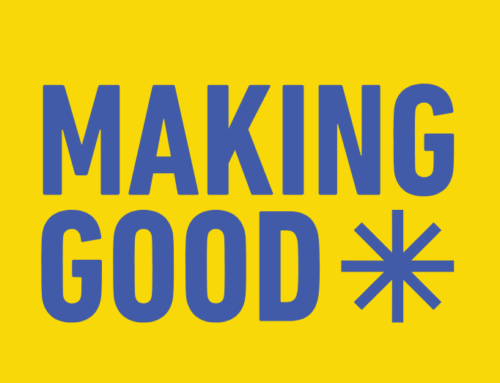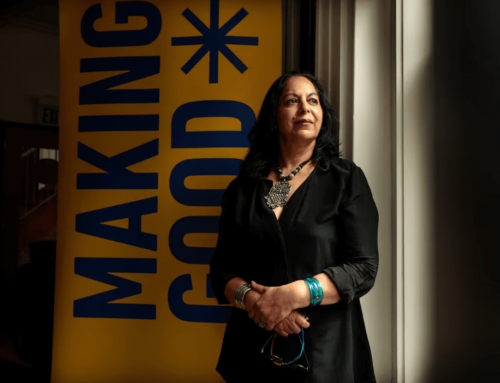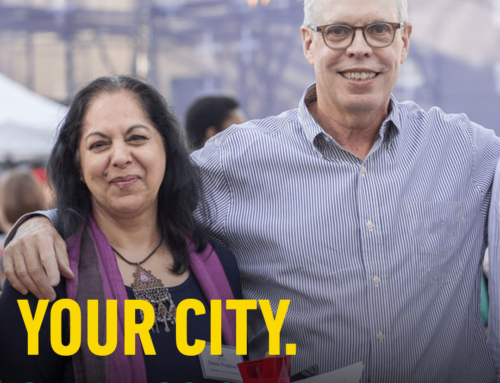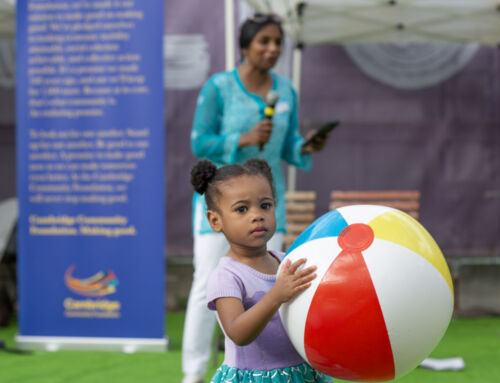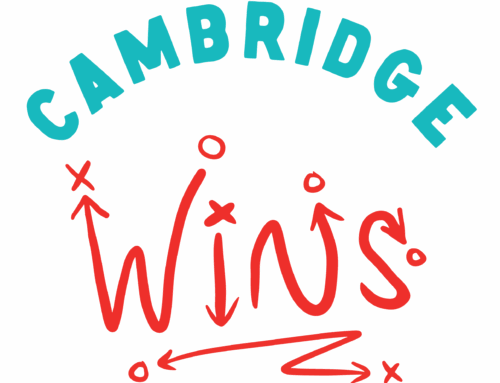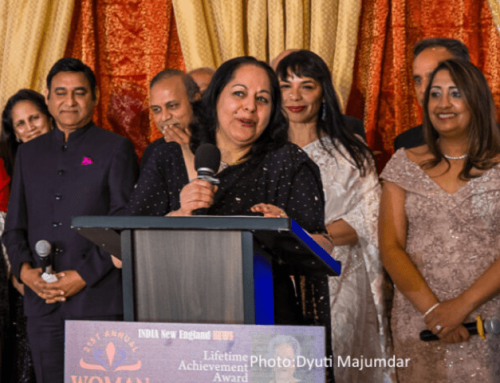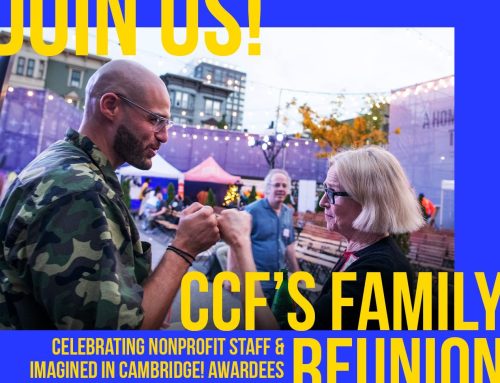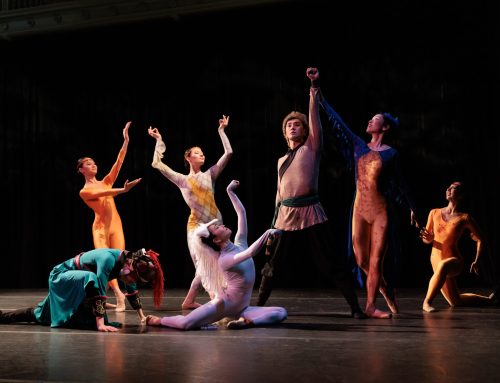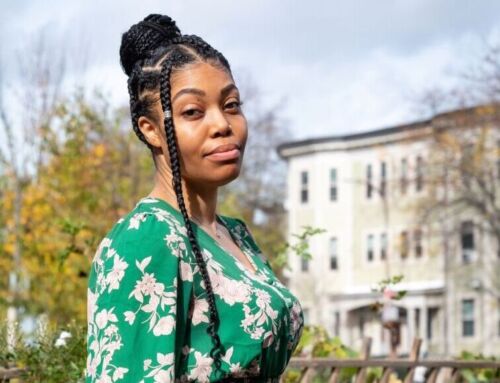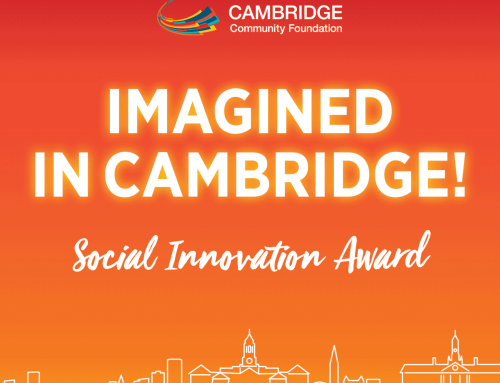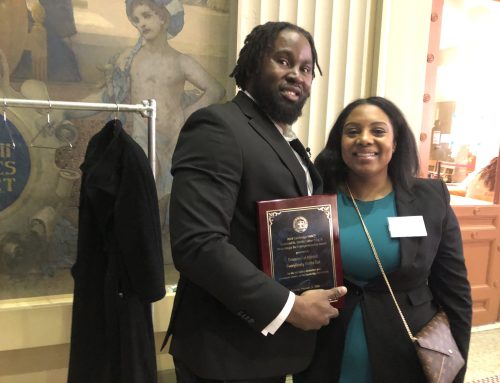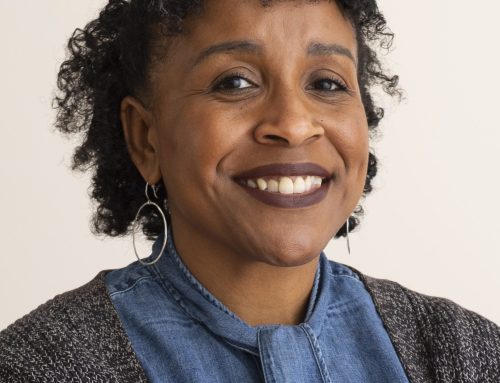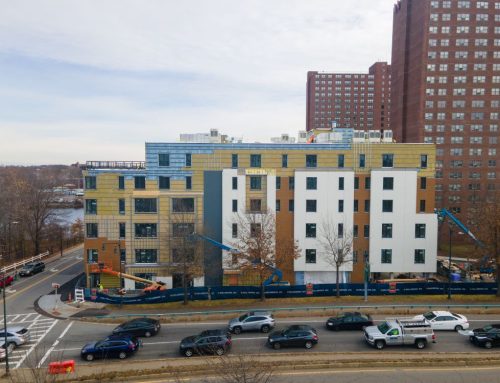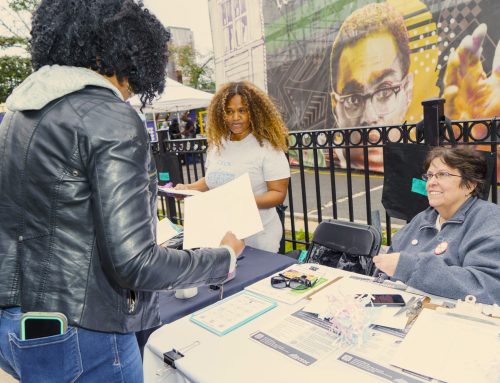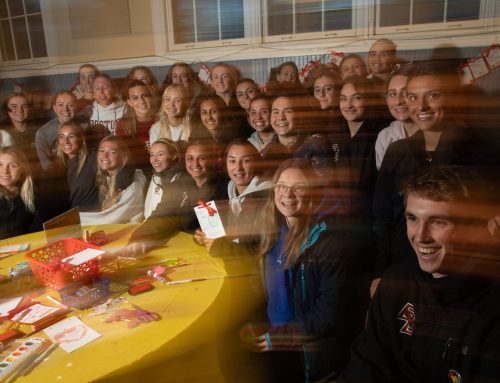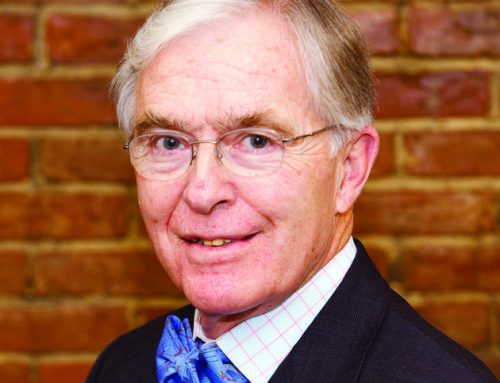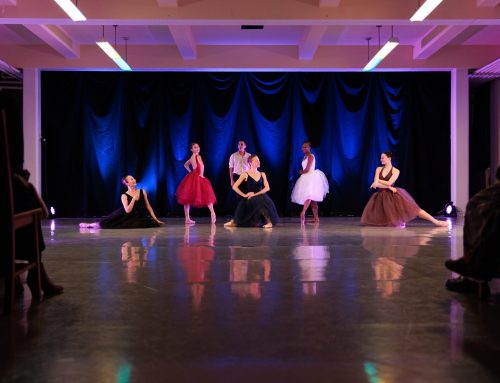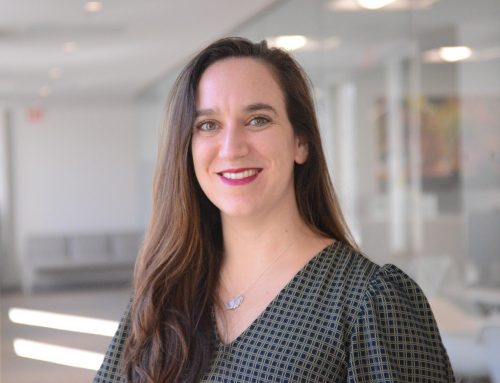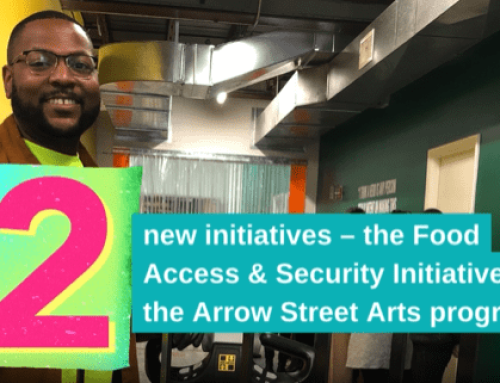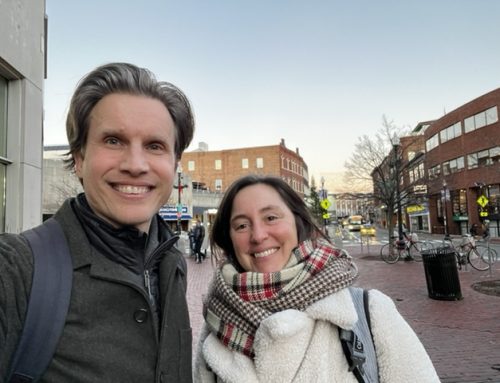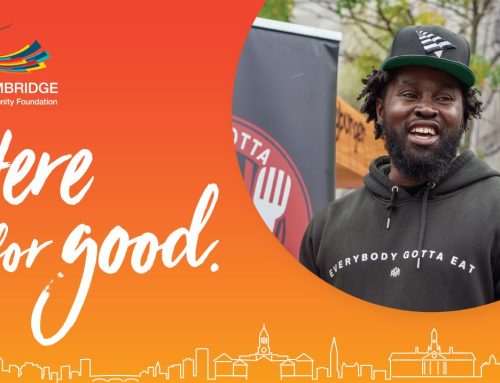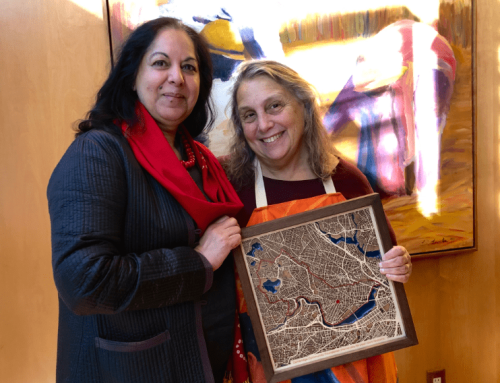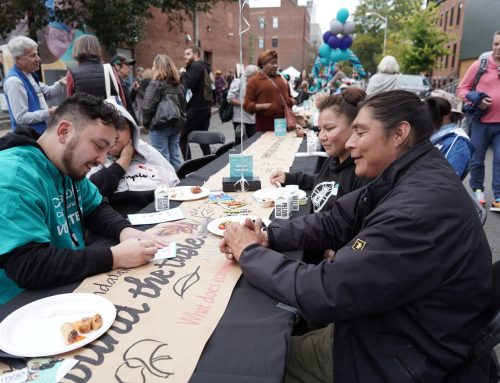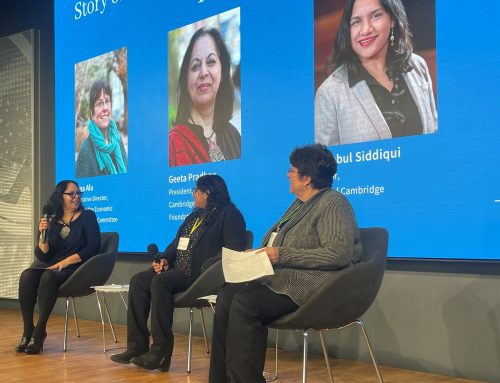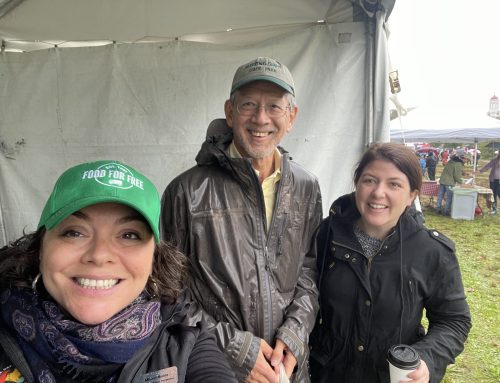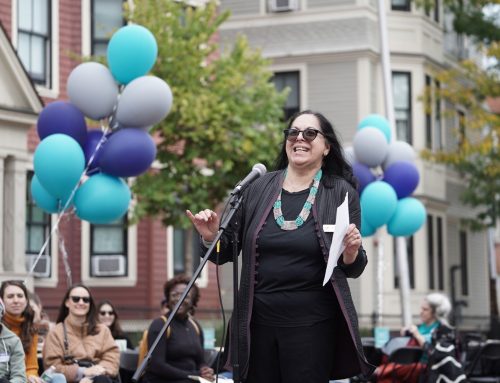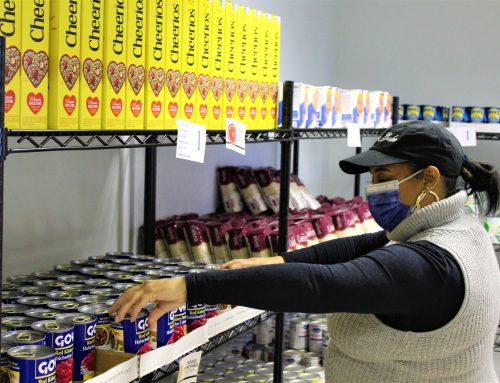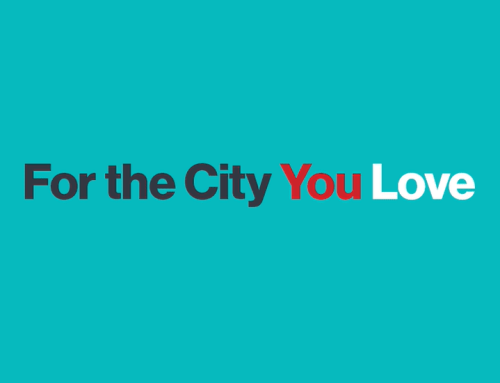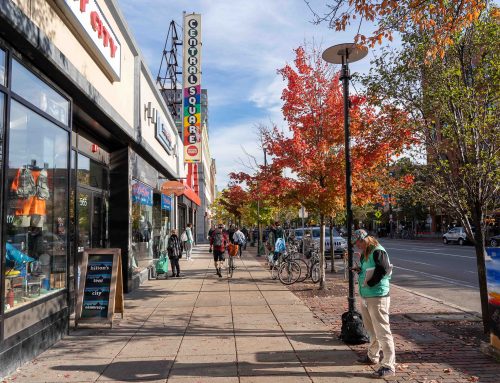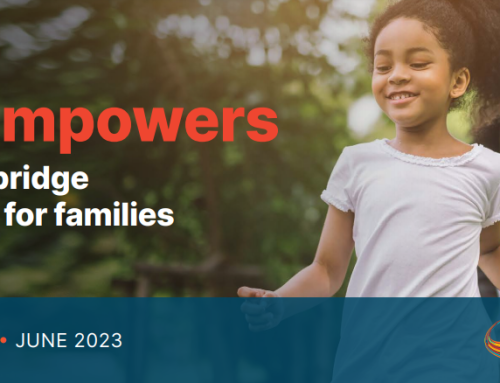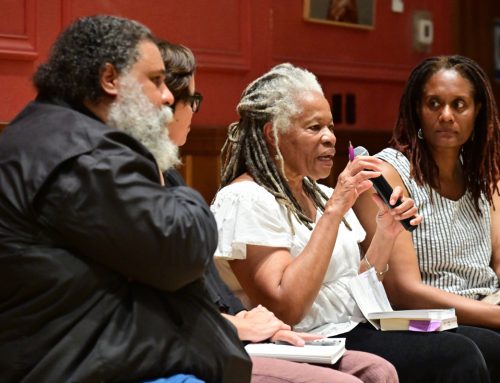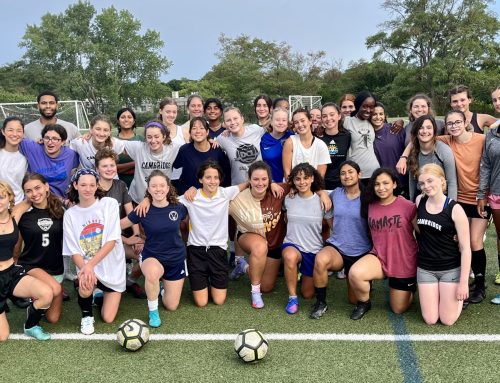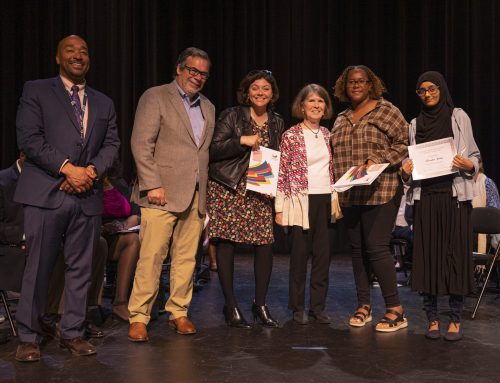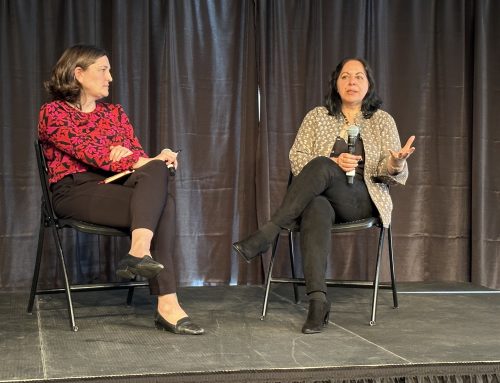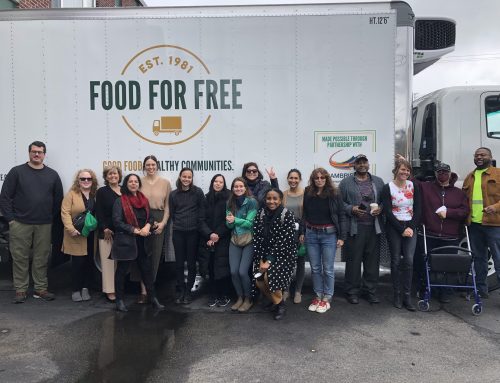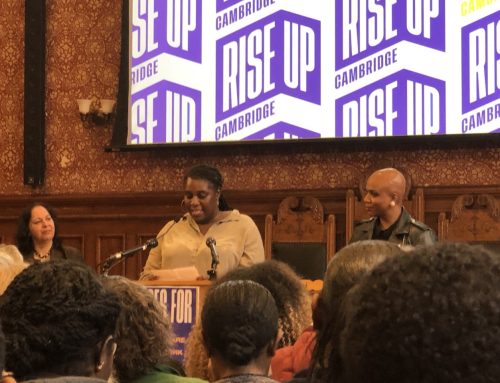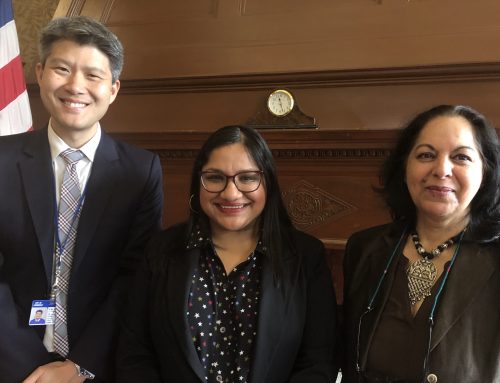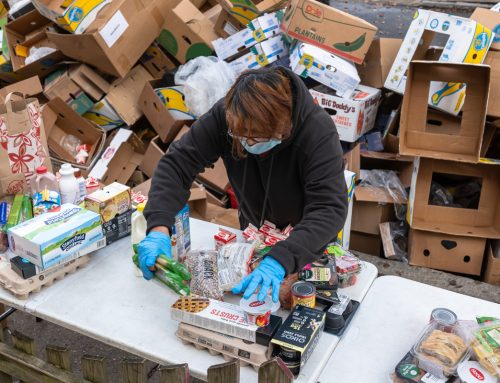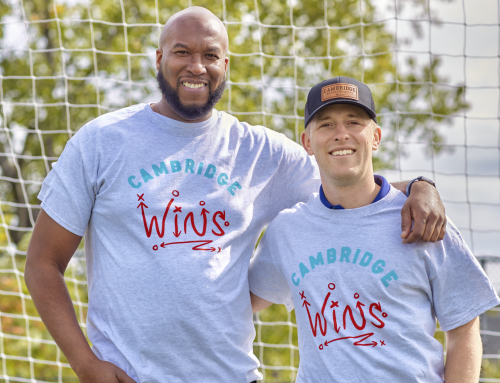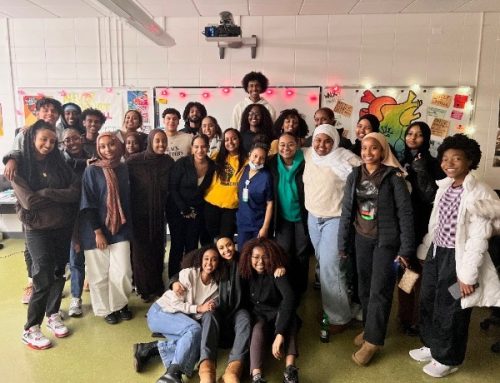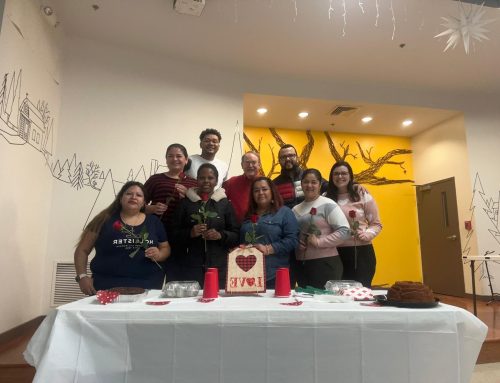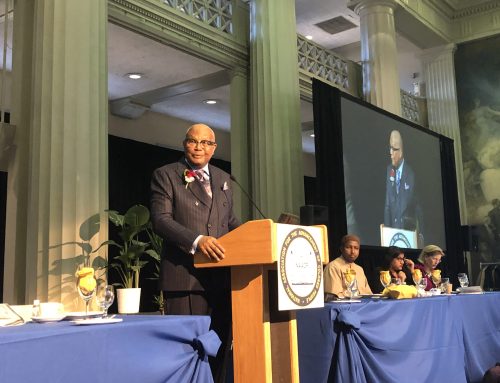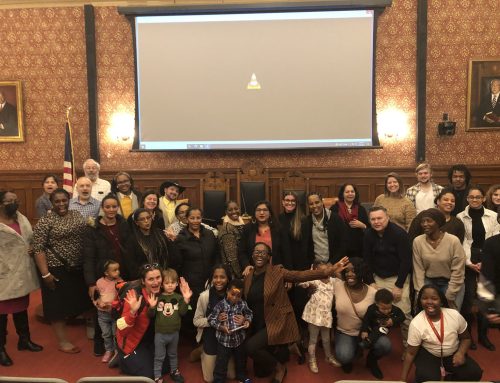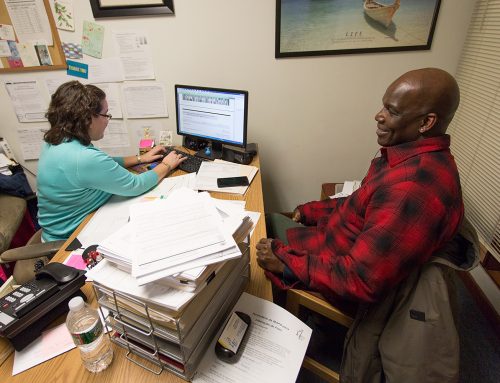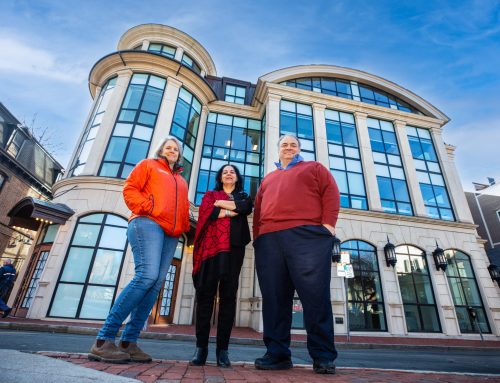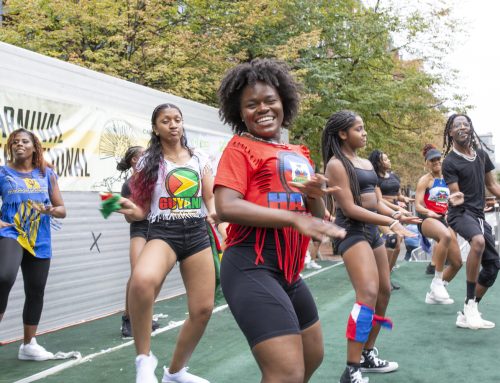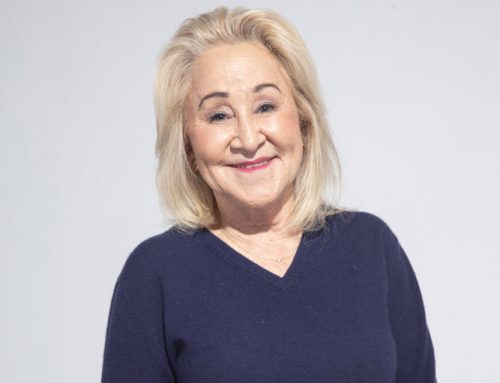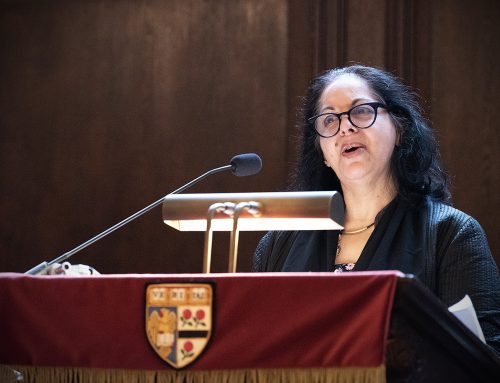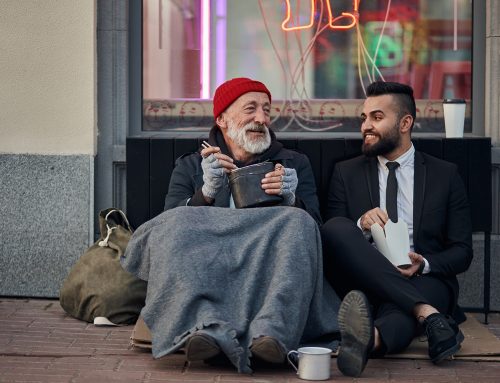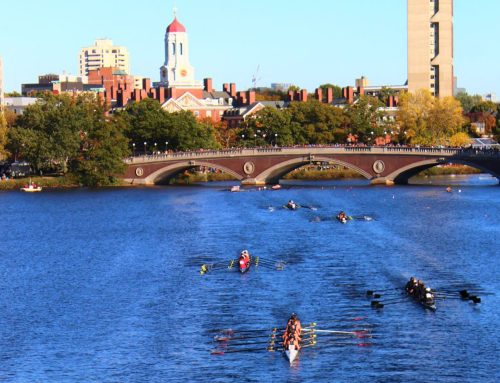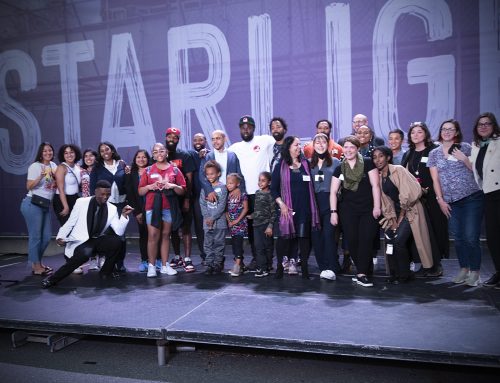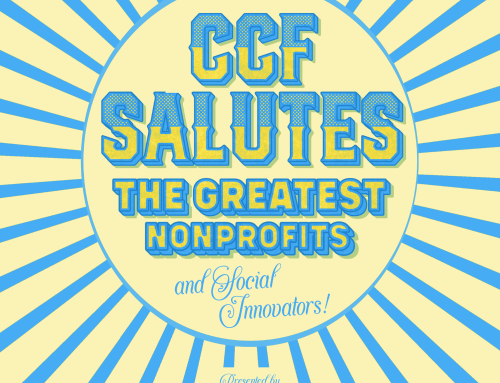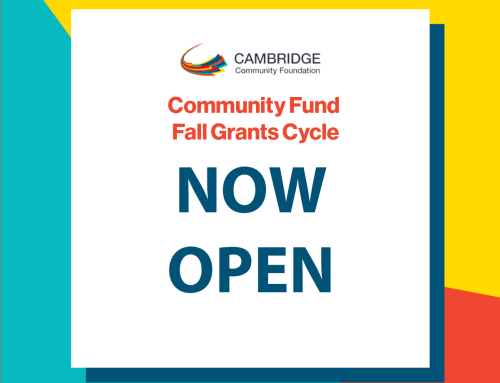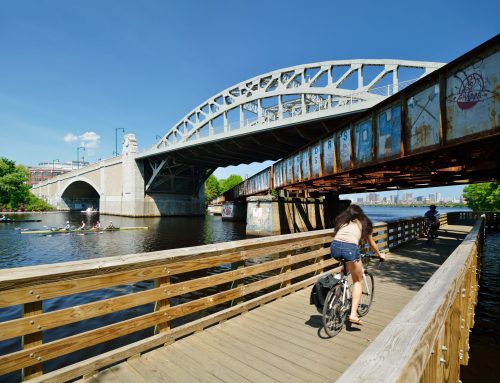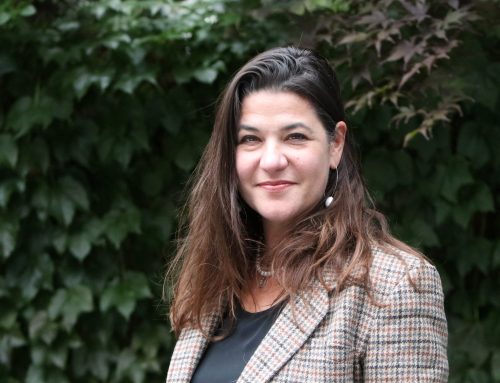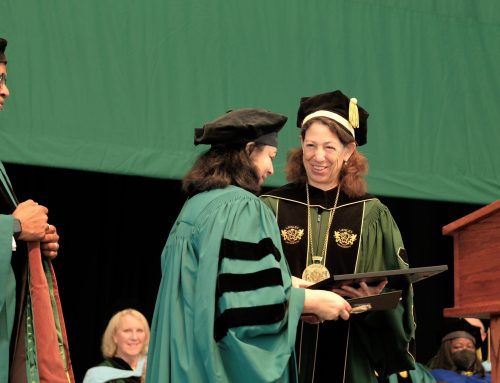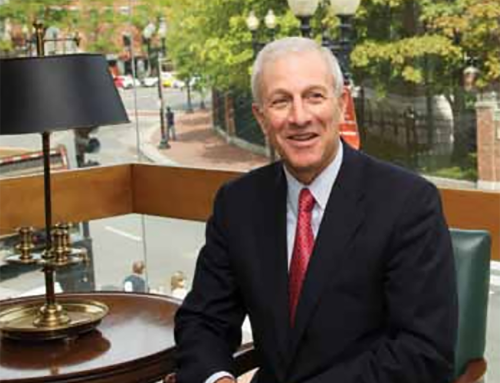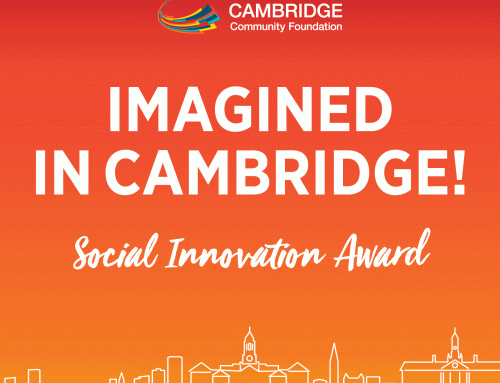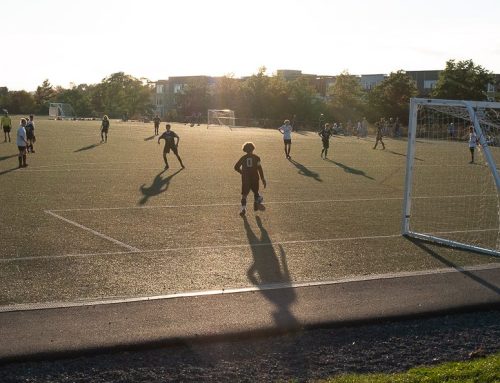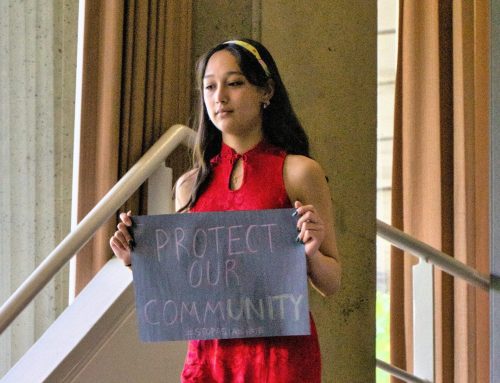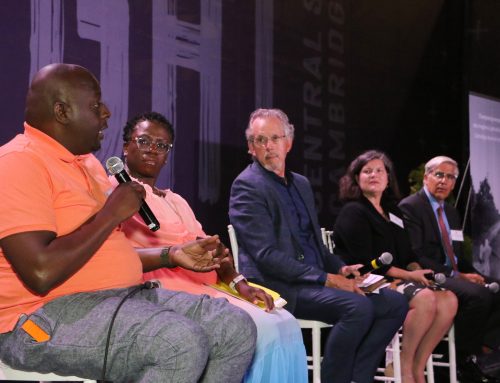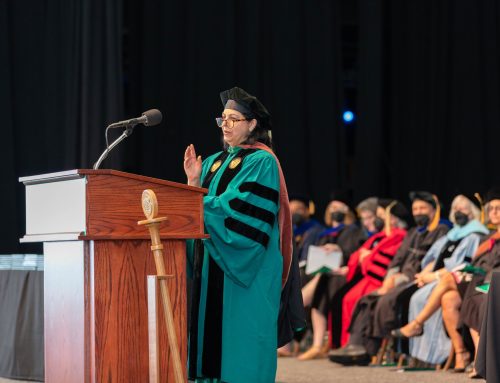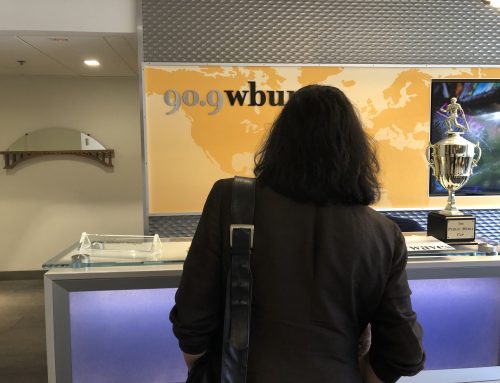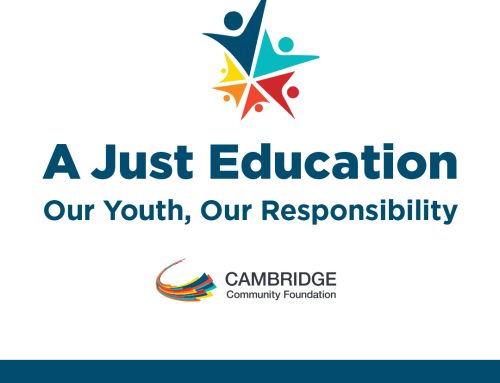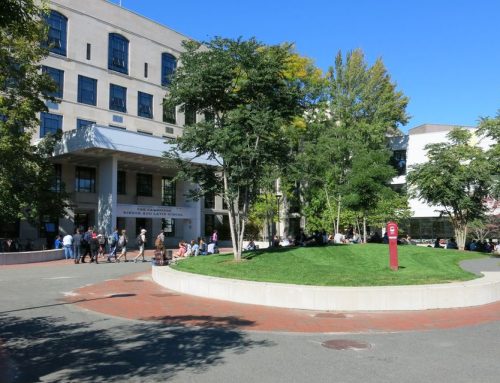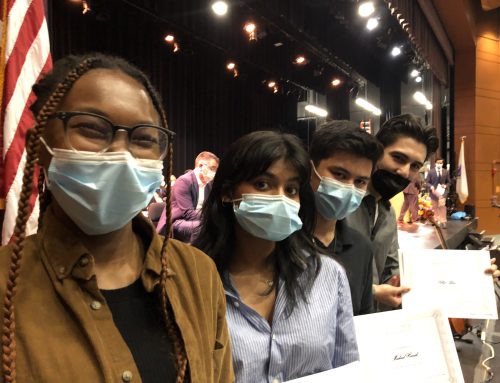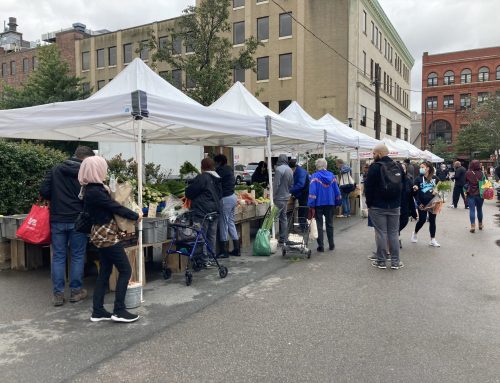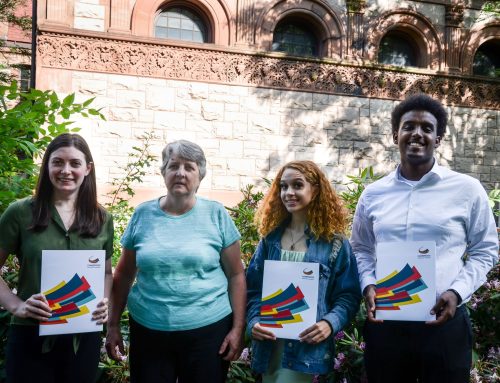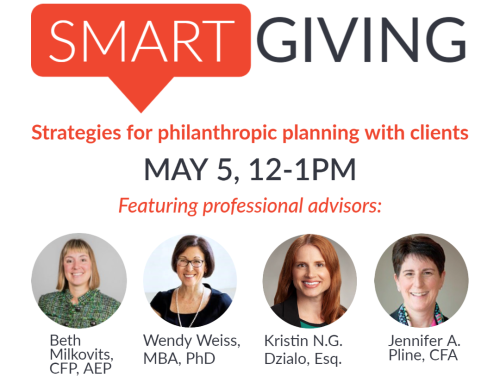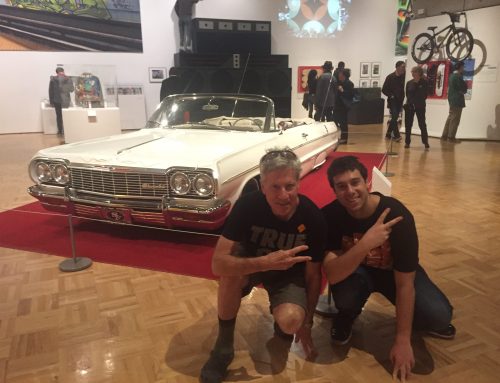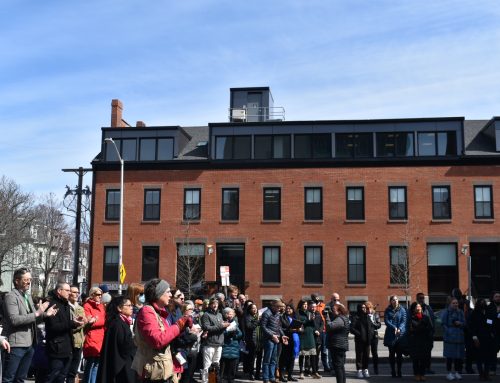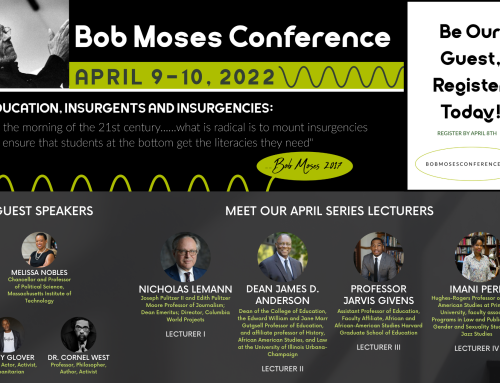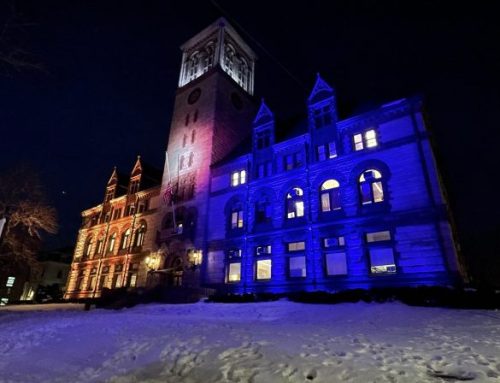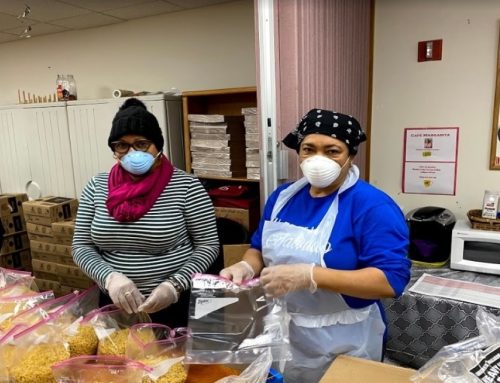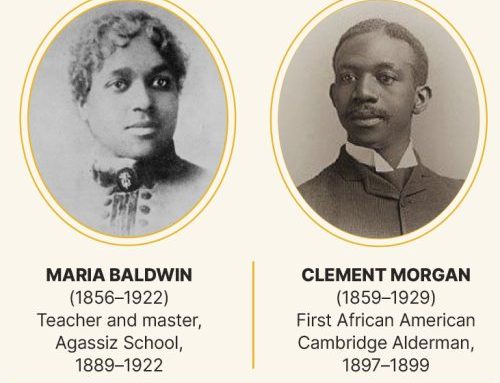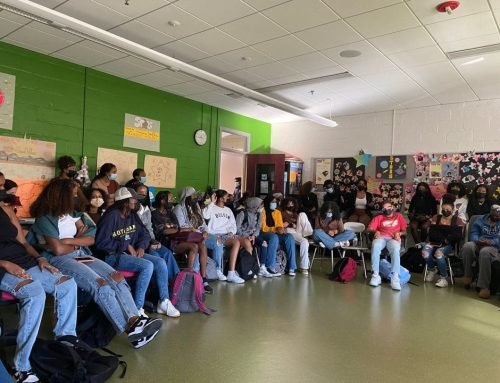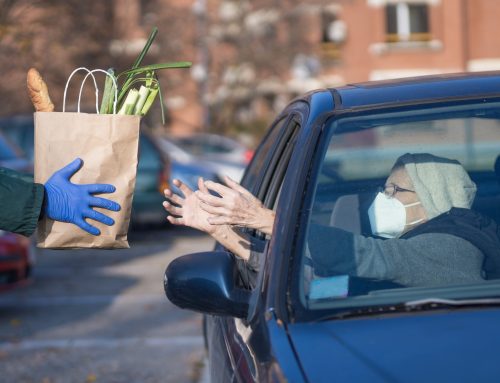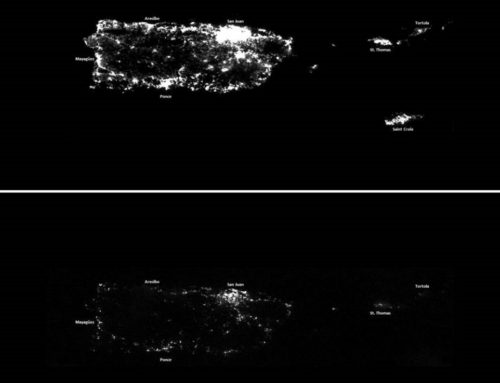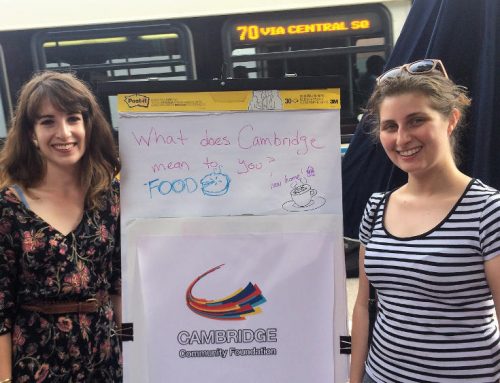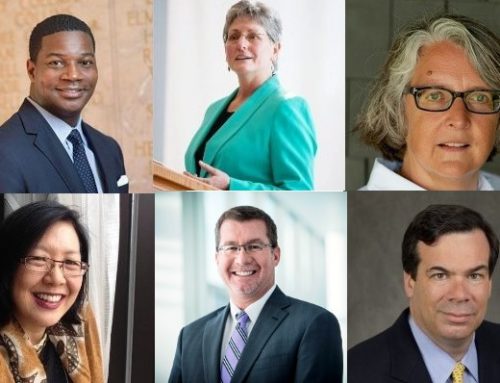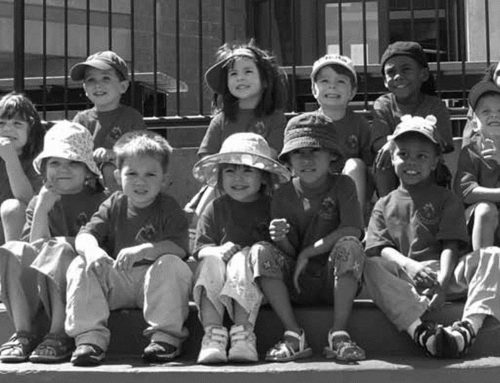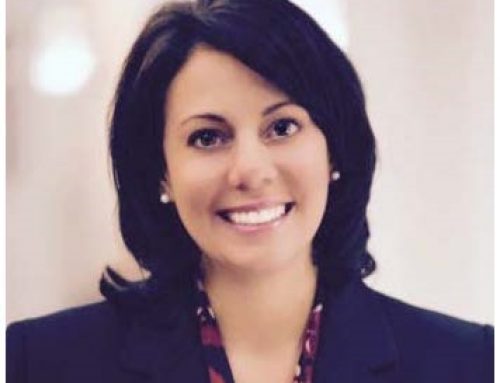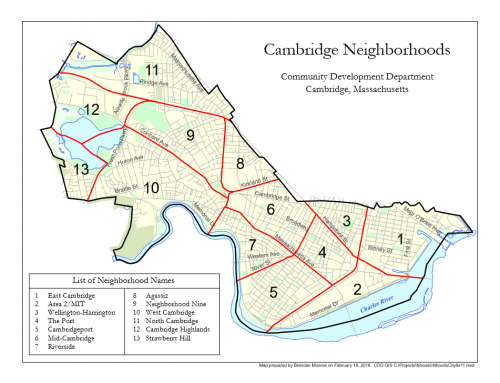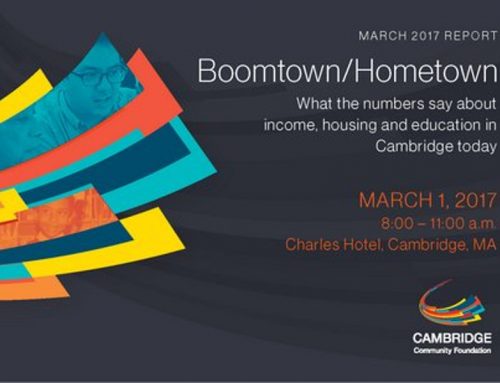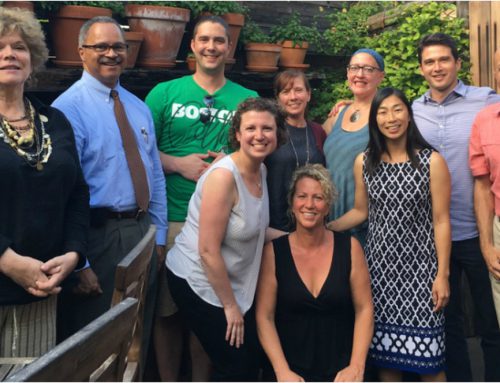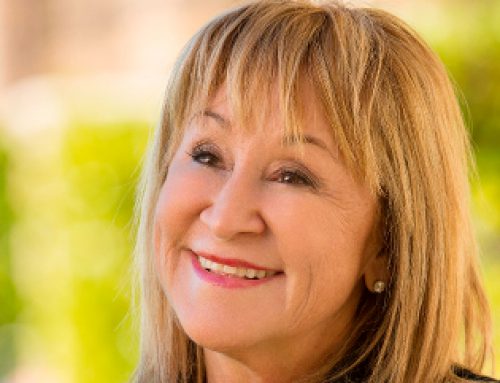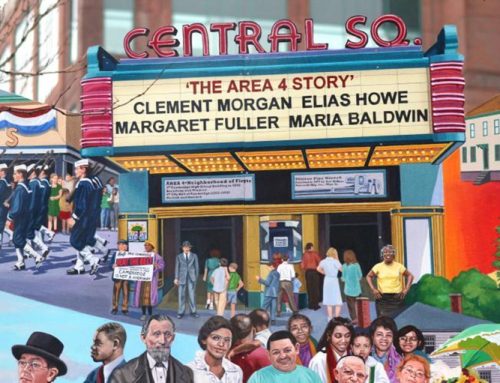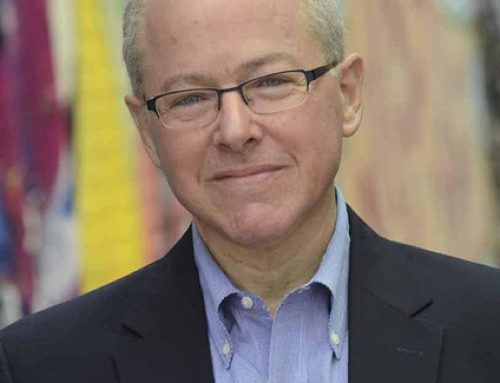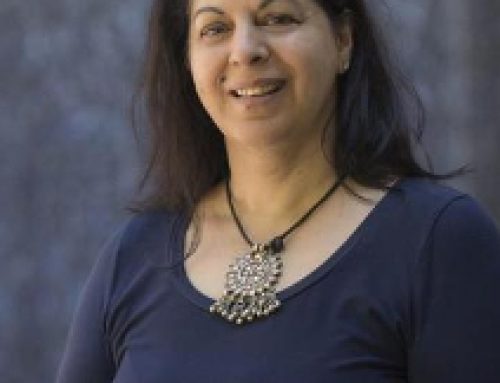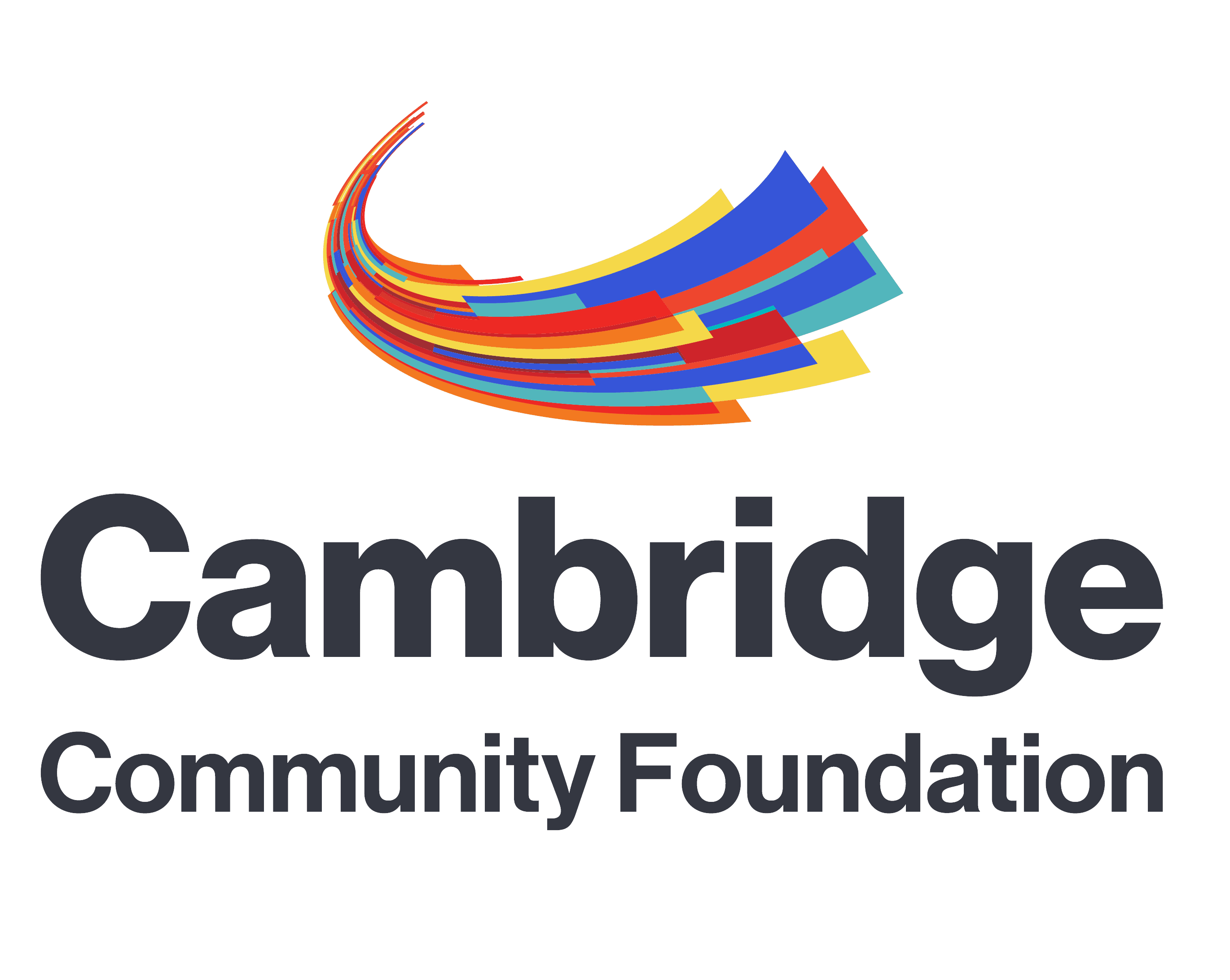Staff and volunteers at the Cambridge Community Center’s Food & Supply Pantry. Photo courtesy of the Center.
July 14, 2020 | Cambridge, MA—The Cambridge Community Foundation (CCF) has distributed $200,000 in new grants to nine nonprofits providing support for basic needs and mental health to vulnerable individuals and families in Cambridge, Somerville, and Medford.
This grantmaking cycle, made possible by the Massachusetts COVID-19 Relief Fund, brings the Foundation’s July investment in the work of nonprofits addressing COVID-19 emergency needs to $465,000. Earlier this month, the Foundation distributed a total of $265,000 to five nonprofits helping with food and housing insecurity. The Foundation has also awarded more than $1.19 million in grants since March, putting emergency funds directly into the hands of over 1,500 individuals and families who live, work, study,create or worship in Cambridge; 31 arts organizations and groups hard-hit by the pandemic; and 27 local nonprofits that gave cash support to their constituents.
“Because of the COVID-19 pandemic, our low-income and immigrant families, and seniors are struggling for food and rent and other basic necessities; this includes the need for connection and community in a socially isolated world,” said Geeta Pradhan, president of the Cambridge Community Foundation. “Thanks to the MA COVID-19 Relief Fund, this new round of grantmaking will help organizations that are uniquely positioned to provide humanitarian assistance because they are trusted by their communities.”
The Massachusetts COVID-19 Relief Fund supports those across the state most impacted by the COVID-19 health crisis, focusing on essential frontline workers and vulnerable populations including the homeless, immigrant populations, people with disabilities, and those facing food insecurity. The Fund works in concert with regional community foundations and nonprofit leaders who partner with local leaders to understand the response and relief landscape, strategically filling in where gaps are pronounced.
A total of $200,000 was divided among nine local nonprofits to help them meet increasing needs in the community. The funding will support:
Agassiz Baldwin Community: $20,000 to provide immediate and tailored support for low-income families and seniors in Cambridge.
Cambridge Community Center: $25,000 to support around 1,000 food-insecure families and community members through their Food & Supply Pantry.
East End House, Inc.: $25,000 to support basic needs identified through emergency case management and emergency supports to fifty under-resourced children, families, and individual cases.
Enroot, Inc.: $25,000 to meet the immediate needs for 45 local immigrant students and their families in Enroot’s College Success program.
Friends of the Medford Family Network Corp.: $10,000 to support the basic needs of Medford families affected by COVID-19, including food, clothing, diapers, toiletries, and more.
Homeowner’s Rehab, Inc.: $25,000 to provide emergency rental assistance to residents in Cambridge who are in danger of eviction due to rental arrearage and to pay utility bills for households in need.
Just-A-Start Corporation: $25,000 to support basic needs of low- to moderate-income individuals in Cambridge, Medford, and Somerville through Just-A-Start’s (JAS’s) education, training, housing and economic security programs.
The Welcome Project, Inc.: $30,000 to provide financial support to immigrant families in Somerville, Medford, and Cambridge who are financially impacted by COVID-19, helping with utilities and other direct costs.
West Medford Community Center: $15,000 to support the emotional and mental health needs of 150 vulnerable individuals in Medford and Somerville as they deal with the immediate and long-term impact of social isolation exacerbated by the pandemic.
Trusted relationships built over decades of service in the community have enabled these organizations to quickly and deeply reach into vulnerable communities to support immigrants, low-income families, and seniors with not just tangible basic needs such as food, rent, diapers, and utilities, but also with breaking the isolation and fear brought on by the pandemic. All grantees have demonstrated nimbleness and resilience, pivoting from in–person to online programs, creating new interventions, and leaning on partnerships to help their communities.
“The first level of COVID problems are food, housing, rent, and the economic impacts, but there is a second level that more insidious. It includes things people don’t know they’re missing, like the loss of celebrating and connecting with people and these things have a significant impact on mental health,” said William Hager, executive director of the West Medford Community Center.
For Hager’s center, battling ‘social isolation’ among immigrant families and seniors was already a challenge pre-COVID-19, and then the pandemic took away the tools they used to combat it—the craft circles, group games, historic re-enactments, and celebrations. But the center was able to recreate them virtually through zoom conversations. “Giving people a virtual space matters. There’s so much fear and anxiety, but if you can offer respite in some way, people feel less alone. It’s a joy to behold,” added Hager.
In Cambridge, three settlement houses, which have offered wrap-around services to generations of vulnerable populations, gained a boost to continue their work with populations most effected by the pandemic—long-standing African-American and immigrant families.
“From the very beginning of the pandemic, we’ve seen first–hand the many ways our vulnerable families and individuals were impacted and it motivated us to quickly adapt and reinvent our services to help,” said Michael Delia, executive director of the East End House. The help, support and trust fostered during these difficult times combined with the collaborations garnered by nonprofits across sectors will go far beyond the emergency response as communities across the Commonwealth work towards recovery.
The Cambridge Community Foundation is the local giving platform for Cambridge, supporting our city’s shared prosperity, social equity, and cultural richness, with roots that go a century deep. Created in 1916 to serve as a vehicle for local giving and to address local needs, the Cambridge Community Foundation brings over a century of local grantmaking experience, deep community relationships, and first-hand knowledge of local nonprofits and partners – to address growing inequities in our community. The Cambridge Community Foundation distributes grants of all sizes each year—$1.5 to $2 million total—to 150 nonprofit organizations solving urgent problems and enriching the daily lives of the city’s residents, especially the community’s most vulnerable. The Foundation’s nonprofit partners administer programs in human services, workforce training, housing, hunger, homelessness, elder services, youth and early childhood services, and the arts. The Foundation is a convener and catalyst for transformative change in Cambridge, supporting equity and opportunity in the city and surrounding communities.
For more information on the Massachusetts COVID-19 Relief Fund, visit MACovid19ReliefFund.org.
For more information on the Cambridge Community Foundation, visit cambridgecf.org.
Contact:
Lauren Marshall
Director of Marketing and Civic Engagement
lmarshall@cambridgecf.org; 617-872-6543


